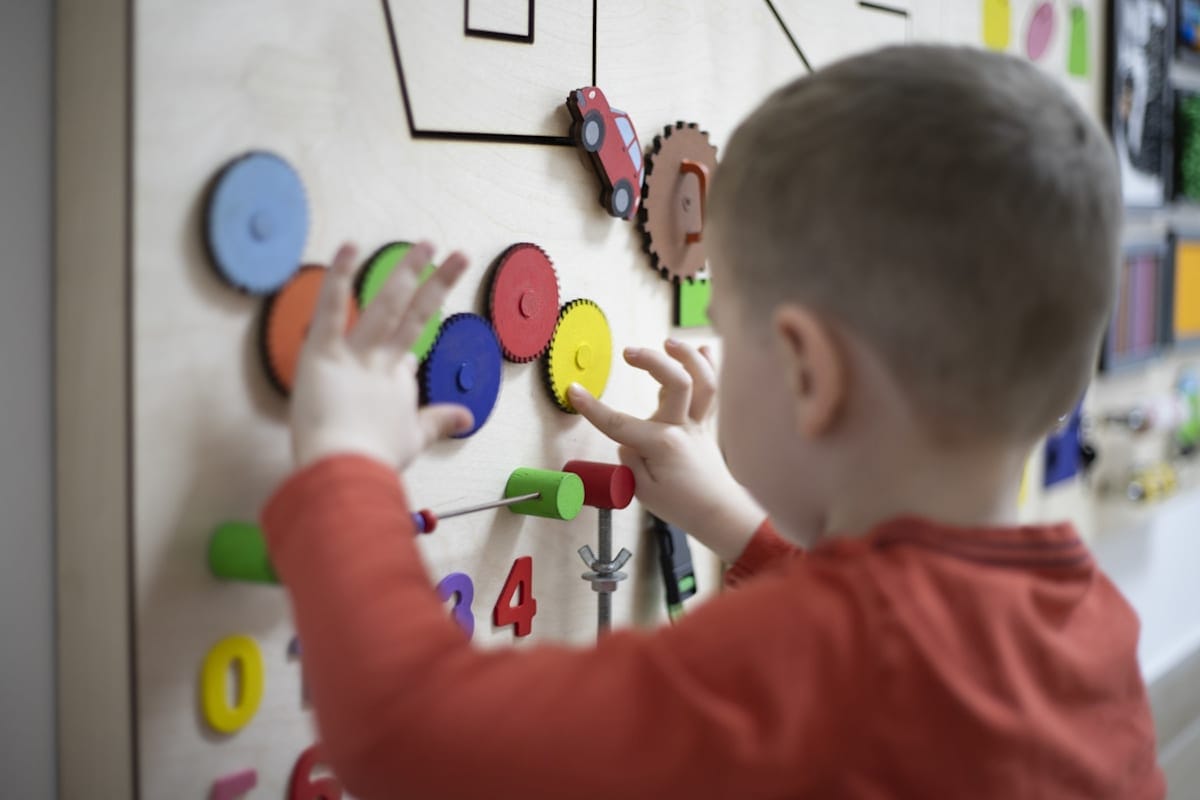
Yesterday marked a transformative moment in Australia’s commitment to equity and inclusion with the release of the National Autism Strategy (2025-31) and its First Action Plan (2025-26).
This strategy is a significant achievement, highlighting the need for systemic change to support the diverse needs of autistic individuals in Australia.
Increasing numbers of children with autism and developmental disability, and their families, have limited access to affordable and effective early interventions and community programs to meet their developmental needs. This is particularly true in rural and remote communities.
“My perspective as an autistic autism researcher is that the ‘Enabling actions – governance arrangements’ in the First Action Plan increase my confidence in the ongoing implementation of the strategy. These steps demonstrate a commitment to an approach that values the autistic voice and supports co-design, partnering, and incorporating lived experience in research”
– Samantha Lewis, Early Career Researcher, Monash University School of Psychological Sciences
The National Autism Strategy identifies health and mental health as one of its four key outcome areas, with a separate National Roadmap to Improve the Health and Mental Health of Autistic People under development.
This targeted roadmap must prioritise accessible, evidence-based mental health services. Autistic individuals are at increased risk for mental health disorders across their lifetime, and have a three-fold risk of early mortality compared with the typical population.
To achieve this, the ecosystem of support for people with disability needs to find a way to “talk to each other” – from Medicare-delivered services, to NDIS individual services, to what happens in the hospital and school settings, and in the community.
The NDIS review will see “navigators” and “foundational supports”, which has the great potential to be a connecting force to help parents of autistic children navigate complex health systems to access clinical interventions for their child.
Integrated, balanced approach
Success will look like a balanced and integrated approach between “foundational supports” helping young people to participate without barriers in their community, together with agile mental health wrap-around when it’s needed at “the right time and the right dose”.
“In the mental health disability space, the ‘research to practice gap’ remains the size of the grand canyon – mental health conditions such as anxiety disorders are the single-most treatable psychological condition in DSM-5, and exposure therapy is a key element of treatment.
“So the solution is pretty straightforward: Create community and school opportunities so that autistic children can safely engage with anxiety provoking stimuli – making new friends, asking for help, playing and dance with kids of their own age, learning a new skill, supporting the process, and then letting them fly.
“We know for sure that none of these basic building blocks for good mental health can be cost-effectively achieved at scale in a 1:1 model of care with a child sitting in a clinic room.”
– Nicole Rinehart, Professor of Clinical Psychology, Monash University School of Psychological Sciences
There’s growing evidence that participation in community-based sports and arts benefits development, with research suggesting gains in physical, cognitive and social domains, as well as mental health (May et al., 2021; Howells et al, 2020; 2022).
Best-practice guidelines for intervention recommend community-embedded approaches, and encourage supports that “honour the goals and activities of childhood including play”.
Read more: What is pathological demand avoidance – and how is it different to ‘acting out’?
The AllPlay programs, funded by the Moose Happy Kids Foundation and Department of Social Services NDIS-Information Linkages and Capacity Building (ILC) grants, are examples of the goals of what the new NDIS foundational supports will look like. (See AllPlay Footy, AllPlay Dance and AllPlay Learn for more).
Further, it’s crucial to integrate mental health capacity-building and support within school settings to ensure co-occurring mental health issues can also be supported. Programs such as AllPlay Learn – which focuses on creating inclusive environments in schools and communities – illustrate how collaborative, evidence-based approaches can bridge the gap between clinical services and daily life.

Hope for complementary supports
On a national scale, we’re yet to see the full menu of opportunities that will be available from the NDIS foundational supports.
The hope is that the National Autism Strategy and NDIS foundational supports will be complementary and also link to the broad ecosystem of support services for children with disability, including clinical, hospital and school programs, and that these systems “speak to one another” so no child misses out.
The idea that community-based sports and arts could be “prescribed” to supplement traditional therapy is appealing, particularly when the inclusion capability of community coaches and arts teachers can be supported and mainstream activities can be made more accessible.
Read more: Bedtime strategies for kids with autism and ADHD can help all families get more sleep
It’s not enough to focus only on replicating the costly and resource-intensive 1:1 clinical care models within non-clinical disability services. Such models, characterised by therapist-directed treatment sessions, have historically been associated with low economic productivity and limited scalability.
Replicating these models within the disability sector would likely exacerbate existing barriers to access and further strain resources, hindering the ability to deliver sustainable, equitable support to individuals with disability.
It’s through the combined efforts of clinical services, individual supports, and more inclusive communities and workplaces that autistic people will have real opportunity and choice.
“When one of my 20-year-old autistic/ADHD female patients who has lived with crippling anxiety, associated sleep disorder, depression related to school bullying, and lifelong peer rejection for ‘being different’ said to me recently that she’s been coming to our multidisciplinary care clinic since she was three years old, my first thought was, that’s a lot of time for her in 1:1 care, a lot of missed time from work for her parents.
“What if I could have referred her to an AllPlay Dance class when she was three years old, and she had spent the past 17 years of her time with peers making friends, and learning the social and adaptive skills needed to take her into adulthood?”
– Professor Nicole Rinehart
What’s beyond the strategy?
The National Autism Strategy and First Action Plan lay a strong foundation for systemic change. We’ve indeed come a long way from the dark old days of parents being handed a diagnosis, a tissue and a pamphlet, and told “there’s nothing else we can do”.
But there’s much to do.
Excellence in clinical and community care, and optimisation of outcomes requires innovative, rigorous scientific methods so that there’s a flow of scientific findings into the community.
We’re living in times where there’s more funding to support the needs of autistic people than ever. But we need to ensure the “right funding bucket” knows what the “left funding bucket” is doing so that we’re not reinventing the wheel.
Funding for scalable “one-stop shops” that have research wrapped around will not only improve developmental outcomes, but have a real chance to prevent complex co-morbidities that have devastating impacts on children and their parents, such as crippling anxiety and sleep disorders.
If we’re serious about challenging the status quo for autistic children, we’ll move beyond “supporting” and “intervening” to “prevention” of co-occurring conditions.
Targeted mental health funding and support: Dedicated funding streams to address the mental health needs of autistic children and adults, including training for clinicians in autism-specific therapeutic approaches, and capacity-building for communities in understanding and supporting co-occuring mental health needs.
Gender-inclusive research and services: Expanding research into gender differences or gendered presentations in autism, and embedding gender-specific research into all models of care.
Family-centric models: Programs that empower families, recognising their role as primary advocates and caregivers, while providing respite and psychological support to reduce caregiver burnout.
Integration with other strategies: Ensuring alignment and coordination with related national and state-level strategies, such as mental health, NDIS strategy, and education policies, to maximise impact and avoid duplication.
Evaluation and accountability: Establishing measurable outcomes to ensure the National Autism Strategy’s commitments translate into tangible improvements for children and families with complex support needs.





